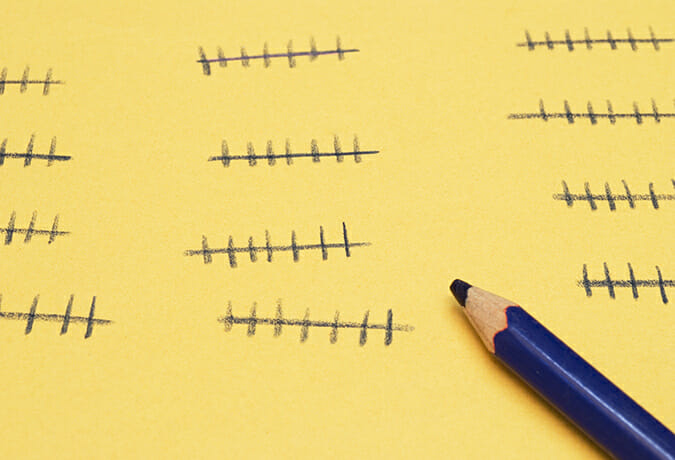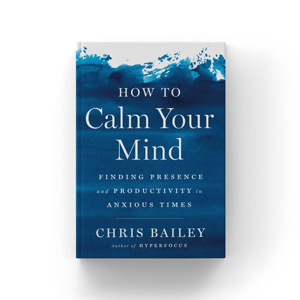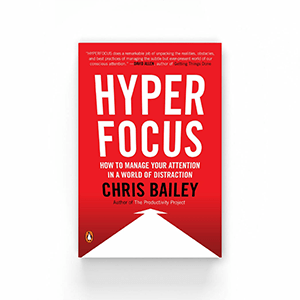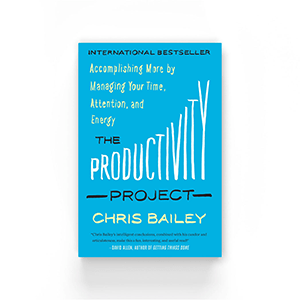
As someone who’s into productivity hacks, I try a lot of random ideas that never make it onto this site. I thought the topic of this week’s post would be one of those ideas, but rewarding myself with “habit points” has boosted my productivity more than anything else I’ve tried this year. It’s also one of the simplest changes to make.
The idea is simple:
- Pick a few habits or behaviors you want to reward—such as meditation, visiting the gym, or eating better. Reward yourself with a predetermined number of habit points each time you invest in one of these activities.
- At the same time, choose a few of your favorite vices—binge-watching a show, ordering takeout, or treating yourself in some other way—to use as rewards. Redeem your habit points on these vices.
To illustrate this idea, here is how I collect habit points:
- Going to the gym: 2 points;
- Each additional 250 calories burned beyond my daily goal: 1 point;
- Fasting for 14 hours: 1 point;
- Each 10 minutes of meditation: 1 point;
- Performing one act of kindness: 1 point.
I also automatically give myself three points each day. This way, I can still indulge in vices even when I don’t invest in my habits—albeit at a significantly reduced rate.
Now for the fun part… here’s how I redeem those habit points:
- One alcoholic drink: 5 points
- One large bag of chips: 20 points
- One massage or pedicure: 20 points
- Large Chinese delivery order: 25 points
- Large pizza delivery order: 35 points
I can spend a maximum of 50 points each day—this way, if I want to have an epic cheat day, I can. Otherwise, I pace my rewards out over time.
Rewarding and spending habit points is a simple idea that accomplishes several things:
- It turns your vices into rewards. This is huge. Before, I felt guilty for each drink I had, bag of chips I ate, or takeout meal I ordered. Now, I’m rewarding my positive habits. This lets me feel amazing whenever I indulge—I’ve earned it!
- You limit how often you indulge. Habit points let you indulge even if you don’t invest in your best habits—only at a significantly reduced rate. This limits how often you indulge when you don’t also build up your positive habits.
- Your valuable habits become even more attractive. Our most valuable habits are often the most difficult to continue. By rewarding yourself, aversive habits—like saving money and meditating—feel more immediately rewarding and worthwhile. On top of this, some new habits are discouraging because they bring drawbacks in the short-term. For example, working out, intermittent fasting, and meditation are habits that will benefit you in the long-run, but are discouraging in the short-term. Habit points make these activities significantly less discouraging.
- You can reward yourself for lapping your goals. I cap how many points I can accumulate on some daily goals—for example, I can only get one point for fasting. But it is possible to earn an unlimited number of points for working out harder (burning more calories), and meditating longer. The more time I spend on these goals, the greater the benefits.
Here are a few tips for creating your own rewards system:
- Strike a balance that will let you become a better person. Treating yourself is nice, but a rewards system that’s too generous won’t be effective in helping you make long-term improvements. While designing your rewards system should be fun, reflect often on whether your system is helpful over time.
- Identify potential rewards by looking at your vices: What vices do you indulge most often, feel most tempted by, or face guilt when doing? These activities may make the best rewards. Guilt is also an uncomfortable feeling worth confronting, and may be a sign that a vice isn’t worth your time and energy.
- Reward yourself for not doing bad habits. There are habits from which you may want to abstain—ones you don’t want to use as rewards. For example, you could reward yourself with two points for every day you don’t overeat.
- Focus on the habits that aren’t already automatic. I’ve made a habit of reading for a couple of hours each day, and so it would be pointless to reward myself for this (even though reading is one of my most valuable habits). Points should require effort to obtain.
- Reward yourself in proportion to how much effort is required. You should reward yourself for how much effort you put into the system as a whole. As your habits solidify—and they will relatively quickly—change your list, or reward yourself with fewer habit points, so the effort you put into the system remains relatively constant.
- Focus on your most valuable habits. Your most valuable habits are those that influence many other parts of your life. Identify these habits, and make them central in your points system.
- Decide whether you’re allowed to go into the negative. Personally, I let myself go as far as -35 points—the cost of a large pizza. This is my costliest vice.
Rewarding yourself with habit points makes investing in your positive activities fun, while removing the guilt you often feel for treating yourself. This idea has been one of the most helpful changes I’ve implemented into my life in a long time.




